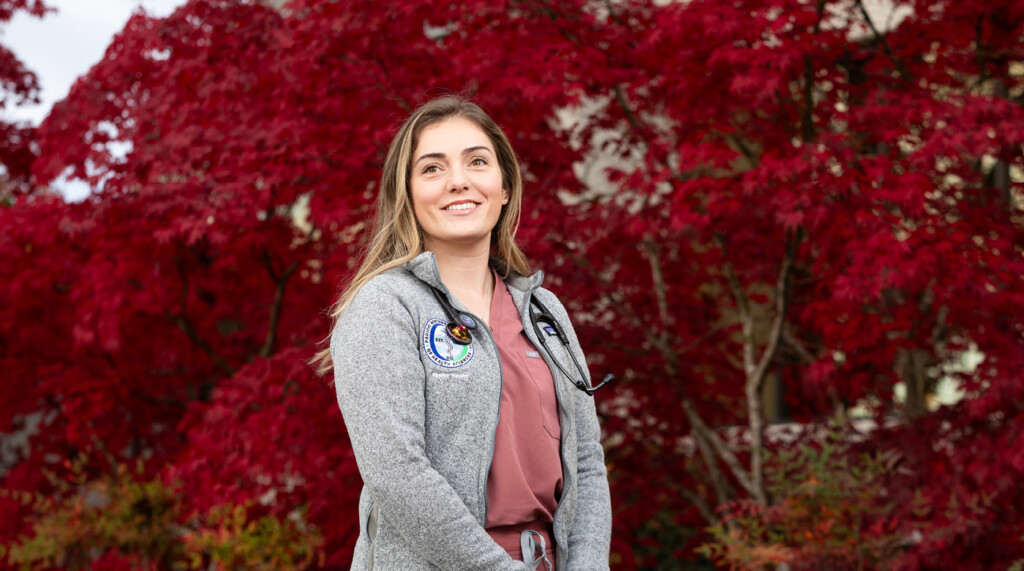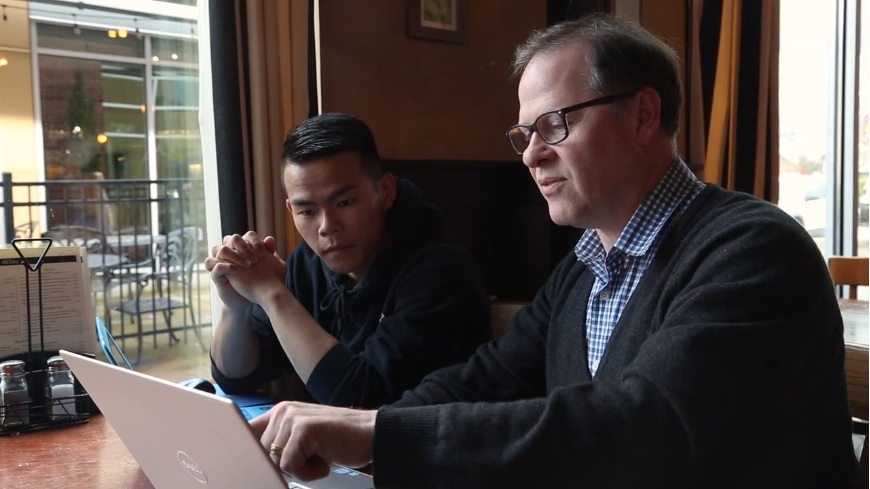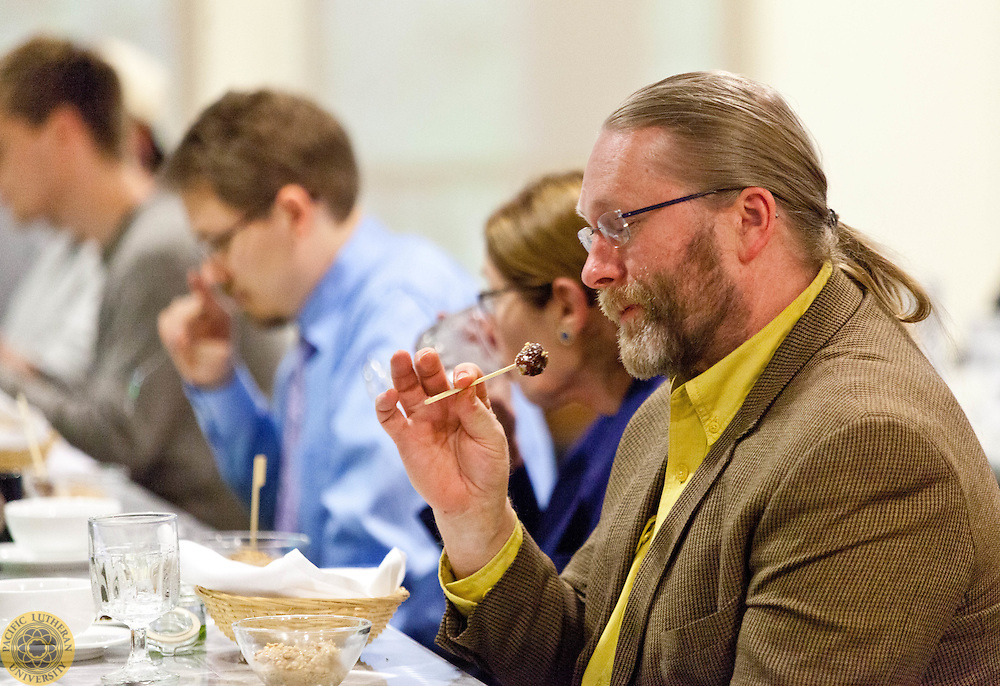Page 52 • (767 results in 0.025 seconds)
-

Shelby Hatton (Murdock) ’17 always knew she wanted to become a doctor, but now that she’s in osteopathic medical school she’s still deciding on what kind of doctor. The challenge, she says, is that she’s enjoying every aspect of her studies. That’s no surprise, because…
like? It’s only a one-year program. In the beginning of the year you take the same Sci-FOM course – scientific foundations of medicine – as the DO students. You’re in that same class, and that’s just to cover all of the basic biomedical science information to make sure that all of the students are on the same page in terms of the basic science. Then, in November, when the DO students transition to systems courses, the MAMS students take a set of other courses. This includes classes like biomedical
-

Angie Hambrick still identifies as a Midwest girl, but after working at PLU for 18 years, she’s also a Lute through and through. As the associate vice president for diversity, justice and sustainability, Hambrick provides strategic vision on matters related to equity and inclusion and…
. It’s no surprise that these groups retain at a lower rate than their peers. Universities were intentionally designed to keep these folks out. Now we’ve let them in, but that alone isn’t nearly enough. Institutions need to rethink, and in a lot of cases completely reconstruct, our systems and structures to equitably serve all of the students we’re recruiting.What do you mean by doing harm?When students come here and leave with debt and without degrees, that’s harmful and unethical. That’s why I
-
The pre-professional program at PLU is a course of study (not a major) that prepares you for admission into a professional school or training program following your undergraduate study.
laboratory A research grade scanning electron microscope A tissue processing microtechnique room A microscopy room Containment facilities for recombinant DNA experiments A human cadaver morgue FTIR, GC/MS, UV/VIS, 500 MHz FTNMR, and emission spectrometers gas and liquid chromatographs PC data acquisition systems Pulsed molecular nitrogen laser Dye laser workbench Pre-med at PLUWhile studying at PLU to prepare for medical school you will: Successfully complete all of the courses required for admission to
-
The pre-professional program at PLU is a course of study (not a major) that prepares you for admission into a professional school or training program following your undergraduate study.
laboratory A research grade scanning electron microscope A tissue processing microtechnique room A microscopy room Containment facilities for recombinant DNA experiments A human cadaver morgue FTIR, GC/MS, UV/VIS, 500 MHz FTNMR, and emission spectrometers gas and liquid chromatographs PC data acquisition systems Pulsed molecular nitrogen laser Dye laser workbench Pre-med at PLUWhile studying at PLU to prepare for medical school you will: Successfully complete all of the courses required for admission to
-
A yearlong sabbatical in 2017-18 provided Dr. Brenda Llewellyn Ihssen, Dr. Michael Schleeter, and Dr. Seth Dowland with opportunities to rethink their courses and pursue scholarly interests.
additional strategies for meeting these goals. Dr. Michael Schleeter, Associate Professor of Philosophy, teaches and produces scholarship in the areas of ethics and political philosophy. During his sabbatical, he was able to take time to rest and restore as well as explore new topics that further extended his areas of expertise, including the role of biology and evolution in systems of ethics.Dr. Schleeter stated that this branch of philosophy includes humanity’s development of moral capacity over time
-
Dr. Erik Hammerstrom, Seminar in Religion
because it gave me many new perspectives on the world. How people interact with each other, nature, social structures, etc, can all be traced to religious history. Being able to understand this has provided me the knowledge and empathy to interact with people of many different backgrounds and belief systems, which is a valuable insight I am very grateful for. Final Video Presentation “But...How Should Our Women Pray?” An Interpretation of Paul’s Conflicting Comments to the Corinthians (1 Cor 11:2-16
-
Speaker: Tamara R. Williams, Professor of Hispanic Studies Executive Director, Wang Center for Global and Community Engaged Education Location: Zoom
the connection between trauma and substance use and provide guidance for clinicians on applying intervention strategies for youth impacted by trauma and substance use based on a manualized treatment approach designed specifically to address these problems. Trauma Systems Therapy for Adolescent Substance Abuse (TST-SA, Suarez, Ellis, & Saxe, 2013) is an integrated treatment program that incorporates empirically validated intervention strategies targeting both substance abuse and traumatic stress in
-
The DJS Fee is a $10 fee per semester per student that helps support diversity, justice, and sustainability initiatives on campus.
students, undocumented students, first in family students, and students who receive accommodations (Center for DJS, Campus Life, Wellness & Health Services) DJS Student Fellowships + Research: Supporting student research furthering PLU’s DJS practices. (Center for DJS) DJS Tracking and Assessment: Tools and systems to provide feedback and accountability for DJS initiatives. (AVP for DJS) Cultural Celebrations: Funding events that celebrate and uplift various world cultures backgrounds. (Center for DJS
-

By Michael Halvorson, ’85 This week is Computer Science Education Week (Dec. 3-Dec. 9) in the United States. I helped celebrate on Monday at the Paul G. Allen School of Computer Science at the University of Washington in Seattle. The event was sponsored by Code.org…
programs in Java, Python, C++, assembly language, and other tools. This work is not just situated in the natural sciences. In the Department of History, for example, we had a fascinating student-faculty research project this summer that considered again the origins of personal computing. Damian Alessandro studied the history of Apple and their first products, wondering to what extent these systems might be considered ‘convivial’ according to the socio-technical context of the 1970s. (The term convivial
-

As you know, PLU went through a difficult process of prioritization this year, responding to lower enrollments and seeking to proactively budget for a sustainable future rather than wait until we reached emergency conditions. This led to hard conversations and hard choices, ultimately made by…
understanding ancient literature in regards to sexuality and autonomy and critiques the current systems we have in place of acknowledging sexuality and addressing issues of consent. We are incredibly proud of these and all our other Classics graduates. We regret that this effective, innovative, and valuable program will no longer be available as a major, but we are very happy to be retaining our Classics minor, and a related minor in Early Christian Studies through a partnership with the Religion Department
Do you have any feedback for us? If so, feel free to use our Feedback Form.


